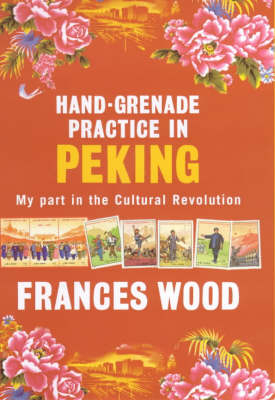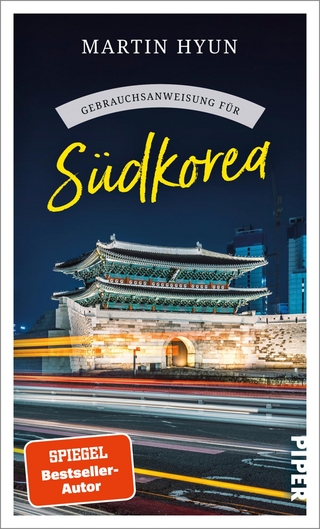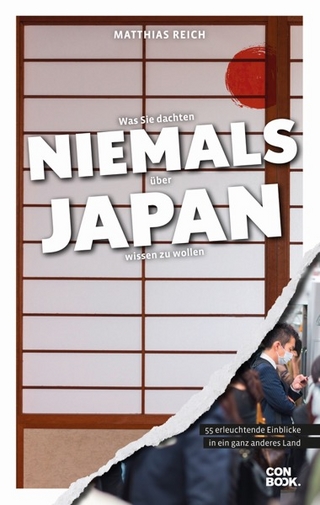
Hand-grenade Practice in Peking
John Murray Publishers Ltd (Verlag)
978-0-7195-5781-1 (ISBN)
- Titel ist leider vergriffen;
keine Neuauflage - Artikel merken
`In 1975 I went to Peking for a year, together with nine other British students who had been exchanged by the British Council for ten Chinese students. The latter knew exactly what they were doing: learning English in order to further the Great Proletarian Cultural Revolution. We were less sure. `From 1966, China had been turned upside down by young Red Guards who were encouraged to `Bombard the Headquarters'. Professors, surgeons, artists, pianists, novelists and film directors were attacked for their bourgeois pursuit of excellence or their attachment to decadent Western ideas. `Though by 1975 there were no longer violent street battles or badly beaten bodies floating down the Pearl River, we found Peking University governed by a Revolutionary Committee of workers, peasants and Party members determined that we should not learn too much and become experts divorced from the masses. `With our Chinese classmates, we spent half our time in factories, getting in the way of workers making railway engines, or in the fields, learning from peasants how to bundle cabbage or plant rice seedlings in muddy water.
Heroically, we stayed up half the night to dig rather shallow underground shelters in case of nuclear attack. Much of the rest of the time was spent in class, with two compulsory hours of Marxism-Leninism-Mao Zedong Thought every Saturday morning and compulsory sport, which included hand-grenade throwing. I studied Chinese history which had to be revised overnight when Deng Xiaoping was criticized for the second time and erased from the record. The constant hammering of political rhetoric, broadcast from tannoys hidden in every tree, and the endless expositions of Marxist-Leninist dialectic were only interrupted by funeral announcements as yet another ancient revolutionary went to join karl Marx. `Just after I returned home, the Great Helmsman himself, Chairman Mao, died. Within weeks, the Great Proletarian Cultural Revolution was not only over but renamed `The Ten Disastrous Years'. The reinstated Deng Xiaoping bounced back and declared that it was glorious to be rich: all my helpful digging and enginemaking had been a mistake.'
Frances Wood studied Chinese at the universities of Cambridge, London and Peking, and between 1972 and 1988 travelled extensively in China. She is now Head of the Chinese Collections in the British Library. Her highly acclaimed book Did Marco Polo Go to China? was also the subject of a Channel 4 documentary. Her most recent book, No Dogs and Not Many Chinese: Treaty Port Life in China, 1843-1943, was described as `first-rate . . . superbly written and highly readable' (The Times); `superb' (Evening Standard); `excellent' (Sunday Times); and `vivid, highly enjoyable and witty' (Daily Mail). She lives in London.
Prologue: The Cultural Revolution; 1. Model Revolutionary Life; 2. The First Chinese Reader; 3. The Ceremony of Entering into Traffic; 4. Kiessling's Canteen; 5. Letters of Determination; 6. Freezing Sheets; 7. First and Last Respects; 8. Two Poems and another Funeral; 9. Deepest Cold; 10. Not a University but a Thermometer; 11. Foreign Affairs; 12. My Poisonous Influence; 13. Negative Teaching Material; 14. North Korean English; 15. Failing to Plant Rice; 16. A visiting Fireman; 17. High Summer and a Third Funeral; 18. Holidays & Earthquakes; 19. Aftershocks; 20. Verdicts reversed again
| Erscheint lt. Verlag | 17.2.2000 |
|---|---|
| Zusatzinfo | illustrations |
| Sprache | englisch |
| Maße | 142 x 21 mm |
| Gewicht | 414 g |
| Themenwelt | Literatur ► Biografien / Erfahrungsberichte |
| Sachbuch/Ratgeber ► Geschichte / Politik | |
| Reisen ► Reiseberichte ► Asien | |
| Geisteswissenschaften ► Geschichte | |
| Sozialwissenschaften ► Politik / Verwaltung | |
| ISBN-10 | 0-7195-5781-X / 071955781X |
| ISBN-13 | 978-0-7195-5781-1 / 9780719557811 |
| Zustand | Neuware |
| Informationen gemäß Produktsicherheitsverordnung (GPSR) | |
| Haben Sie eine Frage zum Produkt? |
aus dem Bereich


